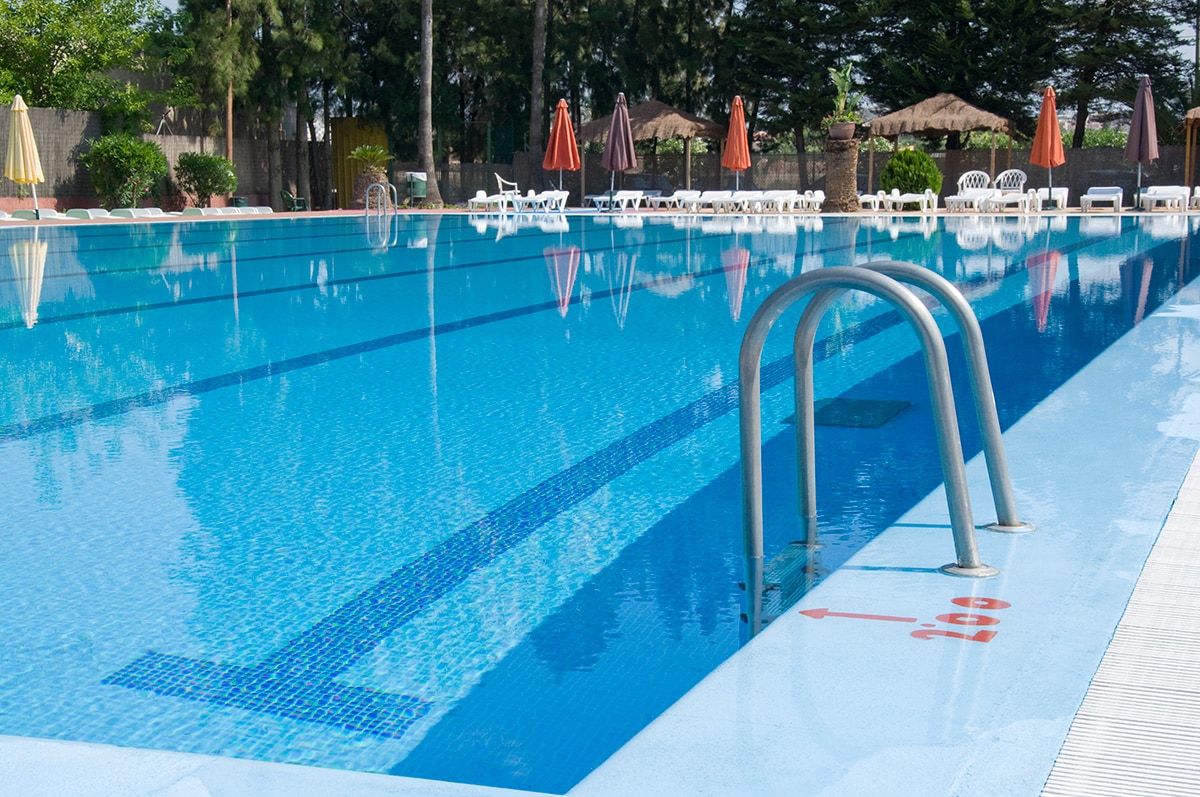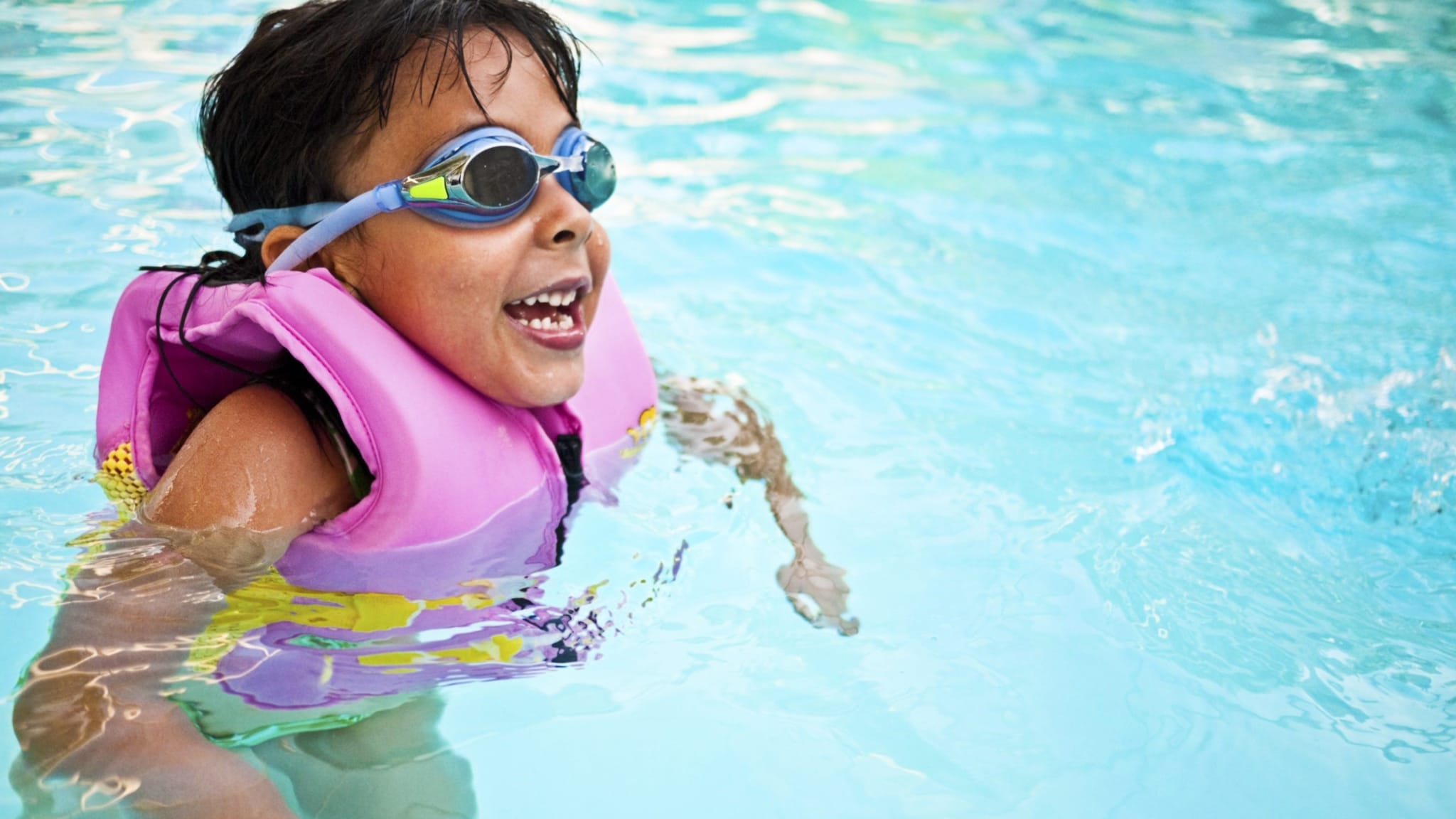Key points
- Water-based exercise offers physical and mental health benefits, including improved health for people with chronic illnesses like diabetes, heart disease, and arthritis.
- However, recreational water can also spread illness or cause injury, so it is important to know what to do to protect yourself and others.

About
Health benefits
Swimming can improve mood and people report enjoying water-based exercise more than exercising on land.
People are able to exercise longer in water without increased joint or muscle pain, which has been shown to be especially helpful for people with arthritis and osteoarthritis. Water-based exercise can help people with arthritis improve the use of their arthritic joints, decrease pain, and not worsen symptoms. People with rheumatoid arthritis have shown more health improvements after participating in hydrotherapy (exercising in warm water) than with other activities.
For people with fibromyalgia, swimming can decrease anxiety, and exercise therapy in warm water can decrease depression and improve mood. Parents of children with developmental disabilities find that recreational activities, such as swimming, improve family connections.
Water-based exercise can benefit older adults by improving their quality of life and decreasing disability. It can also improve or help maintain the bone health of post-menopausal women.
Staying healthy and safe while you swim
To stay healthy and safe while you swim, it is important to understand how to prevent illness and injury when you are in or around the water.
You can get swimming-related illnesses if you swallow, have contact with, or breathe in mists of water contaminated with germs. The most common swimming-related illnesses are diarrhea, skin rashes, swimmer's ear, pneumonia or flu-like illness, and irritation of the eyes or respiratory tract.
Learn more about what you can do to prevent these illnesses when you swim and how to protect yourself depending on where you go (pool, hot tub, splash pad, ocean, etc.)
Preventing Swimming-related Illnesses
Guidelines for Healthy and Safe Swimming
Keeping your pool and hot tub clean
Having pool or hot tub can be a fun way to be active or just relax. It is important to know what to do to reduce the risk of pool-related injury and illness, as well as how to clean your pool if it has been contaminated by poop, vomit, blood, or a dead animal.
Guidelines for Keeping Your Pool Safe and Healthy
Responding to Pool Contamination
- US Census Bureau. Statistical Abstract of the United States: 2012. Arts, Recreation, and Travel: Participation in Selected Sports Activities 2009. [XLS – 40 KB] ·
- U.S. Department of Health and Human Services. 2008 Physical Activity Guidelines for Americans: Be active, healthy, and happy! In Chapter 2: Physical Activity Has Many Health Benefits. 2009.
- Westby MD. A health professional's guide to exercise prescription for people with arthritis: a review of aerobic fitness activities. Arthritis Rheum. 2001;45(6):501-11.
- Hall J, Skevington SM, Maddison PJ, Chapman K. A randomized and controlled trial of hydrotherapy in rheumatoid arthritis. Arthritis Care Res. 1996;9(3):206-15.
- Tomas-Carus P, Gusi N, Hakkinen A, Hakkinen K, Leal A, and Ortega-Alonso A. Eight months of physical training in warm water improves physical and mental health in women with fibromyalgia: a randomized controlled trial. J Rehabil Med. 2008;40(4):248-52.
- Broman G, Quintana M, Engardt M, Gullstrand L, Jansson E, and Kaijser L. Older women's cardiovascular responses to deep-water running. J Aging Phys Act. 2006;14(1):29-40.
- Cider A, Svealv BG, Tang MS, Schaufelberger M, and Andersson B. Immersion in warm water induces improvement in cardiac function in patients with chronic heart failure. Eur J Heart Fail. 2006;8(3):308-13.
- Bartels EM, Lund H, Hagen KB, Dagfinrud H, Christensen R, Danneskiold-Samsøe B. Aquatic exercise for the treatment of knee and hip osteoarthritis. Cochrane Database Syst Rev. 2016;3:CD005523.
- Berger BG, and Owen DR. Mood alteration with yoga and swimming: aerobic exercise may not be necessary. Percept Mot Skills. 1992;75(3 Pt 2):1331-43.
- Gowans SE and deHueck A. Pool exercise for individuals with fibromyalgia. Curr Opin Rheumatol. 2007;19(2):168-73.
- Hartmann S and Bung P. Physical exercise during pregnancy—physiological considerations and recommendations. J Perinat Med. 1999;27(3):204-15.
- Mactavish JB and Schleien SJ. Re-injecting spontaneity and balance in family life: parents' perspectives on recreation in families that include children with developmental disability. J Intellect Disabil Res. 2004;48(Pt 2):123-41.
- Sato D, Kaneda K, Wakabayashi H, and Nomura T. The water exercise improves health-related quality of life of frail elderly people at day service facility. Qual Life Res. 2007;16:1577-85.
- Rotstein A, Harush M, and Vaisman N. The effect of water exercise program on bone density of postmenopausal Women. J Sports Med Phys Fitness. 2008;48(3):352-9.




